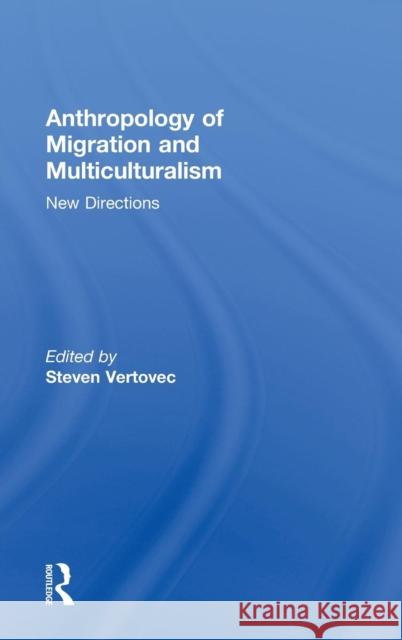Anthropology of Migration and Multiculturalism: New Directions » książka
Anthropology of Migration and Multiculturalism: New Directions
ISBN-13: 9780415499361 / Angielski / Twarda / 2009 / 224 str.
Anthropology of Migration and Multiculturalism: New Directions
ISBN-13: 9780415499361 / Angielski / Twarda / 2009 / 224 str.
(netto: 672,22 VAT: 5%)
Najniższa cena z 30 dni: 654,86
ok. 22 dni roboczych.
Darmowa dostawa!
The field of anthropology of migration and multiculturalism is booming. Throughout its hundred-odd year history, studies of migration and diverse or 'plural' societies have arguably been both marginal and central to the discipline of Anthropology. However, recent years have witnessed the rapid growth of anthropological studies concerning these topics. This has particularly been the case since the 1970s, when anthropologists developed a keen interest in the subject of ethnicity, especially in post-migration communities. Since the 1990s, migrant transnationalism has become one of the most fashionable topics. There is still much to do in research and theory surrounding this field, not least with regard to contemporary public debates around multiculturalism, immigration and 'integration' policy. This book presents essays pointing toward a number of possible new directions - both theoretical and methodological - for anthropological inquiry into migration and multiculturalism, including innovative ways of examining diversity discourses, urban conditions, social complexities, scales of analysis, transnational marriages, entangled politics and interwoven cultures. This book was published as a special issue of the Ethnic and Racial Studies.
It is a kind of boom time for the anthropology of migration and multiculturalism. While throughout its hundred-odd year history, studies of migration and diverse or ‘plural’ societies have arguably been both marginal and central to the discipline of Anthropology, recent years have witness the rapid growth of anthropological studies concerning these topics. This has particularly been the case since the 1970s, when anthropologists developed keen interest in the subject of ethnicity, especially in post-migration communities. Since the 1990s, migrant transnationalism has become one of the most fashionable topics. There is still much to do in research and theory surrounding this field, not least with regard to contemporary public debates around multiculturalism, immigration and ‘integration’ policy. This book presents essays pointing toward a number of possible new directions – both theoretical and methodological – for anthropological inquiry into migration and multiculturalism, including innovative ways of examining diversity discourses, urban conditions, social complexities, scales of analysis, transnational marriages, entangled politics and interwoven cultures.
This book was published as a special issue of the Ethnic and Racial Studies.











